States of Matter
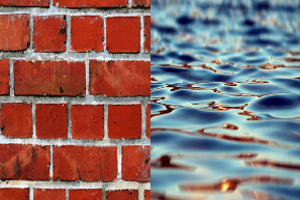
This science scheme of work for Key Stage Two gets the children to explore, test and explain how a range of different materials can change their states between solids, liquids and gases by conducting a series of fair tests. The class can test how to clean contaminated water using filtering, evaporation and condensation.
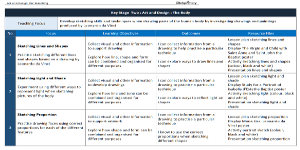
Explore, test and explain how a range of different materials can change their states between solids, liquids and gases by conducting a series of fair tests
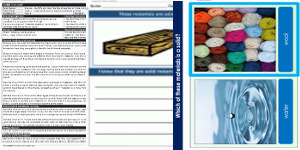
Lesson One : Solid or Liquid
Identify and describe the properties of different materials that can be classed as either solids or liquids based on their material properties
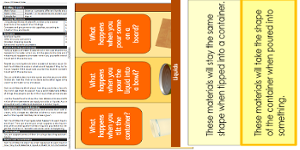
Lesson Two : Testing Liquids
Name, describe and compare different types of liquids and conduct a range of tests to identify their matching properties
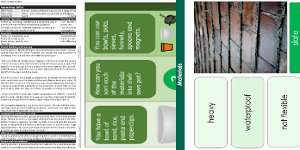
Lesson Three : Separating Solids
Explore, describe and test different ways of sorting a selection of solid materials into matching groups using a range of techniques
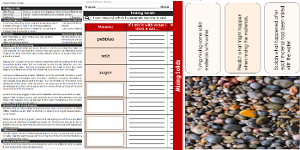
Lesson Four : Mixing Solids
Investigate, test and record scientific observations about what happens when mixing a range of different materials with water
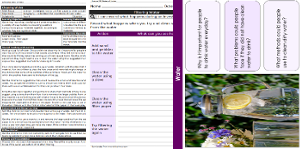
Lesson Five : Cleaning Water
Identify, explain and test how to use filter paper to clean contaminated water when different solid materials have been mixed with a liquid
-
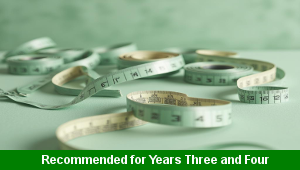
Length Calculations
Practise using number calculations skills for addition, subtraction, division and multiplication when solving problems related to length measurements
-

Maths Calculations Assessment
Assess abilities in solving a range of different number problems for addition and subtraction when working with informal and formal written calculations
-
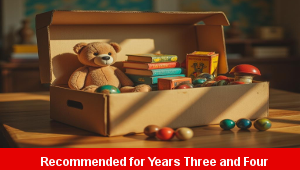
Determinant Lists
Explain and model how to make lists of objects used and found in different locations to match the correct determinants of a and an
-
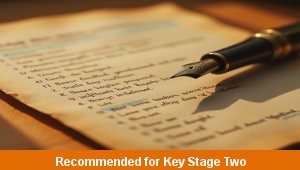
English SPAG Assessment
Assess abilities in composing sentences for fiction and non-fiction using the correct spellings, punctuation marks and grammar vocabulary phrases
